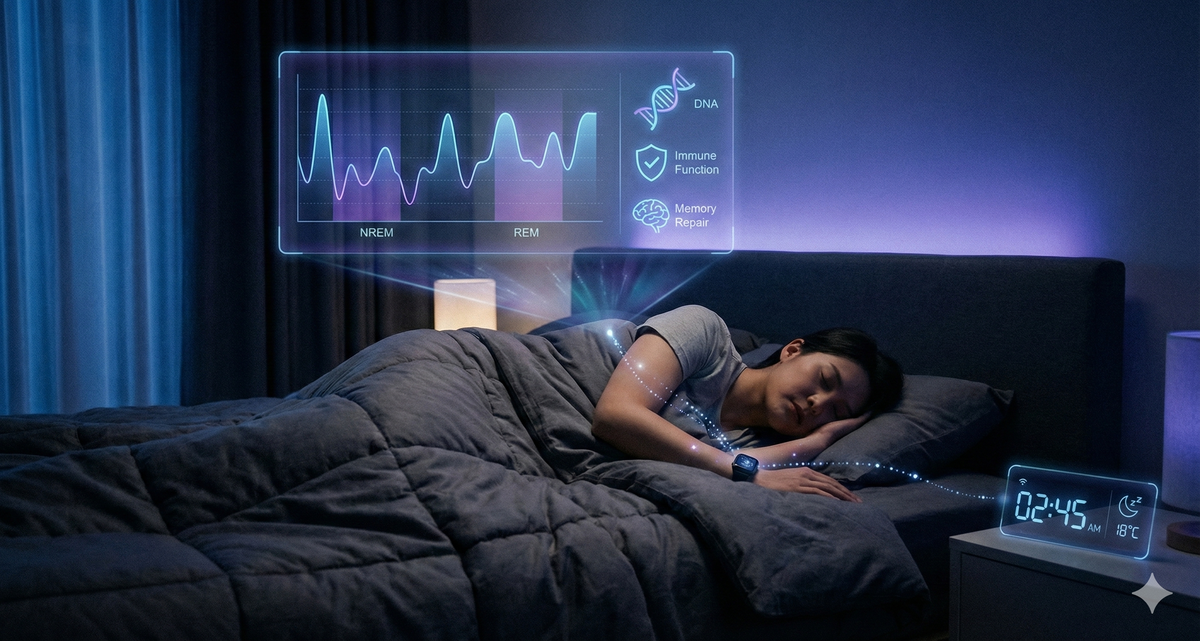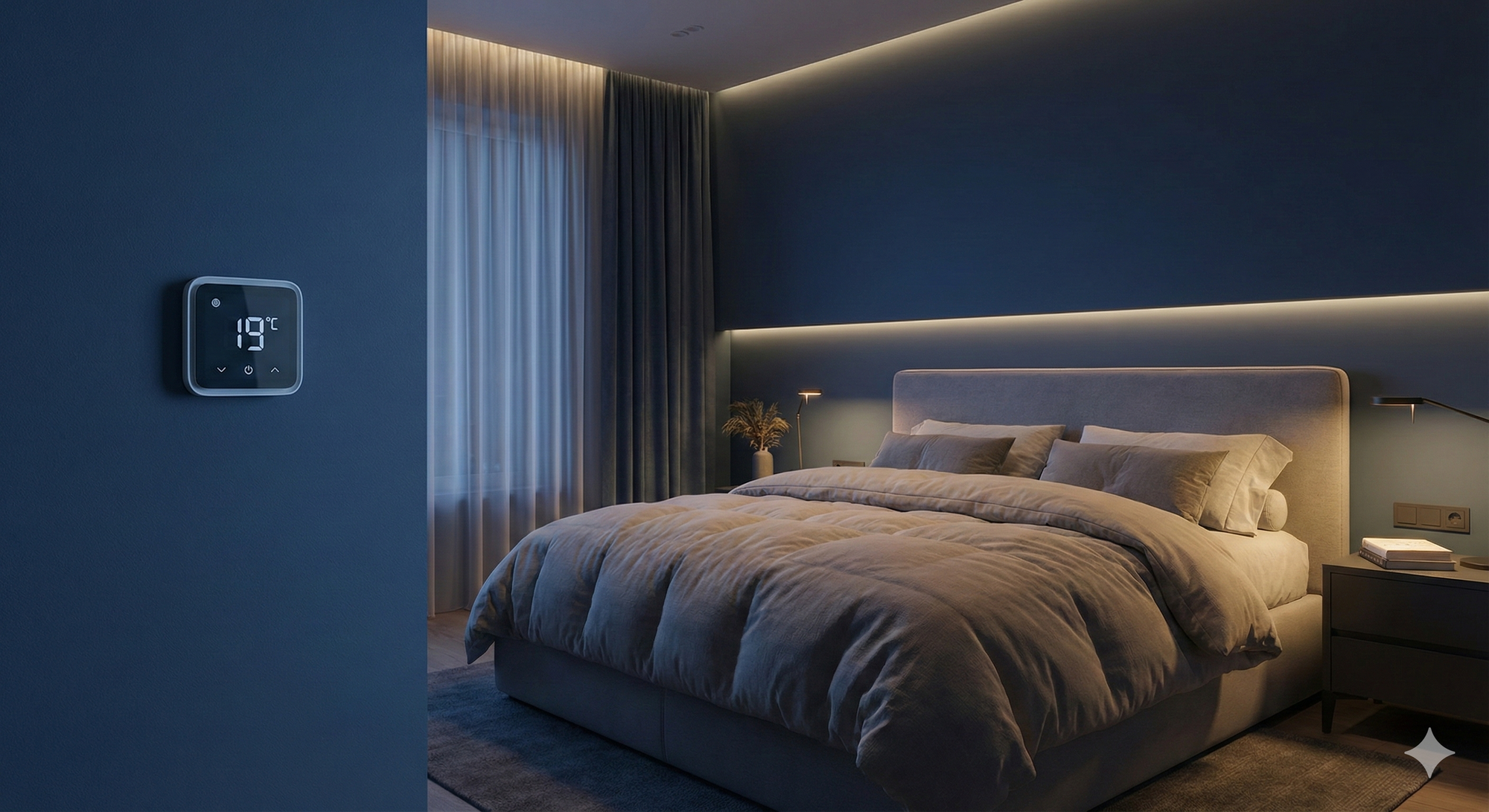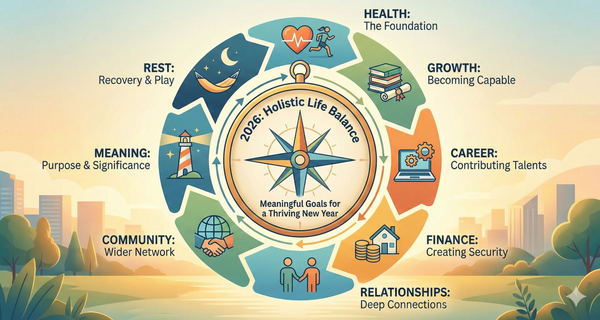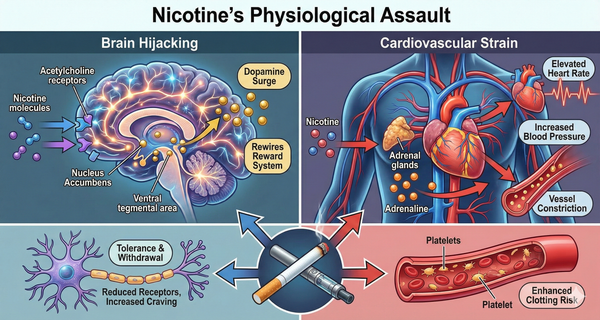The Science of Sleep: Unlocking Better Rest

Sleep is one of our most fundamental biological needs, yet millions of people struggle to get the quality rest their bodies crave. In our fast-paced world, understanding the science behind sleep has become more crucial than ever for maintaining optimal health and well-being.
Quality sleep isn't just about feeling refreshed in the morning—it's a cornerstone of physical health, mental clarity, and emotional stability that affects every aspect of our lives.
Recent research has revealed that sleep plays a vital role in memory consolidation, immune function, tissue repair, and metabolic regulation. When we consistently prioritize better sleep, we're investing in our long-term health, cognitive performance, and overall quality of life. The good news is that advances in sleep science are providing us with unprecedented insights into how we can optimize our rest naturally and effectively.
Understanding Sleep Science
The field of sleep science has experienced remarkable growth in recent years, with researchers uncovering fascinating details about what happens during our nightly rest. Modern sleep research utilizes sophisticated technology to monitor brain activity, physiological changes, and sleep patterns, giving us a clearer picture of how sleep impacts our health than ever before.
Scientists have identified that sleep occurs in distinct stages, each serving unique biological functions. During non-REM sleep, our bodies focus on physical restoration, while REM sleep is crucial for memory processing and emotional regulation. Understanding these sleep cycles has revolutionized how we approach rest tips and sleep optimization strategies.
Advancements in Sleep Research
Recent breakthroughs in circadian science have revealed the intricate relationship between our internal biological clocks and sleep quality. Researchers have discovered that our circadian rhythms are influenced by factors beyond just light exposure, including meal timing, exercise patterns, and even social interactions. This comprehensive understanding has led to more personalized approaches to improving sleep.
One of the most significant developments in sleep research involves the study of sleep architecture—the detailed structure of sleep stages throughout the night. Advanced polysomnography and home sleep monitoring devices now allow researchers to track micro-awakenings, sleep efficiency, and the precise timing of sleep stage transitions. These insights have been instrumental in developing targeted interventions for various sleep disorders.
Additionally, genetic research has uncovered individual variations in sleep needs and preferences. Some people are naturally programmed to be early risers, while others function better as night owls. This genetic component explains why universal sleep advice doesn't work for everyone and emphasizes the importance of personalized sleep strategies.
Technological Innovations in Sleep
Artificial intelligence and machine learning are transforming how we diagnose and treat sleep disorders. AI-powered sleep tracking devices can now detect patterns that might indicate sleep apnea, restless leg syndrome, or other conditions that require medical attention. These technologies analyze vast amounts of sleep data to provide personalized recommendations for better sleep.
Smart home technology is also playing an increasingly important role in sleep optimization. Automated systems can adjust room temperature, lighting, and even sound environments based on individual sleep patterns and preferences. Some advanced systems use biometric data to predict optimal bedtimes and wake times, creating a truly personalized sleep experience.
Wearable technology has made sleep monitoring accessible to the general public, allowing individuals to track their sleep patterns and identify factors that impact their rest quality. These devices provide valuable feedback on sleep duration, efficiency, and the relationship between daily activities and nighttime rest.
Practical Tips for Better Sleep
While understanding sleep science is fascinating, the real value lies in applying this knowledge to improve our daily rest. Implementing evidence-based strategies can significantly enhance sleep quality without relying on medications or expensive treatments. The key is consistency and patience, as sleep improvements often take time to manifest.
Effective rest tips are grounded in scientific research and focus on addressing the multiple factors that influence sleep quality. From environmental modifications to lifestyle adjustments, small changes can yield significant improvements in how well we sleep and how refreshed we feel upon waking.
Establishing a Sleep-Conducive Environment
Creating an optimal sleep environment involves carefully controlling several environmental factors that can either promote or hinder quality rest. Temperature regulation is crucial—research indicates that the ideal bedroom temperature for most people falls between 65-68°F (18-20°C). This slightly cool environment supports the natural drop in core body temperature that occurs during sleep onset.

Circadian lighting plays a pivotal role in regulating our sleep-wake cycles. Exposure to bright light, particularly blue light from screens, can suppress melatonin production and delay sleep onset. Installing dim, warm lighting in bedrooms and using blackout curtains or eye masks can help create the darkness necessary for quality sleep.
Sound management is equally important for maintaining uninterrupted sleep. While complete silence isn't necessary for everyone, consistent, gentle background noise like white noise or nature sounds can mask disruptive environmental sounds. Some people benefit from earplugs, while others prefer the consistency of a fan or dedicated sound machine.
The bedroom should be reserved primarily for sleep and relaxation. Removing work materials, electronic devices, and other stimulating objects helps create a mental association between the bedroom and rest. This psychological conditioning, known as stimulus control, can improve sleep onset and overall sleep quality.
Lifestyle Adjustments for Enhanced Rest
Timing plays a crucial role in sleep quality, and establishing consistent sleep and wake times helps regulate our internal circadian rhythms. Even on weekends, maintaining a relatively consistent schedule prevents the disruption known as "social jet lag," which can affect sleep quality throughout the week.
Evening routines that incorporate relaxation techniques can significantly improve sleep onset and quality. Progressive muscle relaxation, gentle stretching, or meditation can help transition the body and mind from the day's activities to a restful state. These practices activate the parasympathetic nervous system, which promotes relaxation and prepares the body for sleep.
Dietary considerations also impact sleep quality. Avoiding large meals, caffeine, and alcohol close to bedtime can prevent sleep disruptions. While alcohol might initially make you feel drowsy, it can significantly impact sleep architecture and lead to fragmented, less restorative rest. Instead, consider herbal teas like chamomile or valerian root, which have mild sedative properties.
Regular physical activity is one of the most effective ways to improve sleep quality, but timing matters. Exercise earlier in the day can promote deeper, more restorative sleep, while intense physical activity close to bedtime may be stimulating and delay sleep onset. Finding the right balance based on individual preferences and schedules is key to maximizing the sleep benefits of exercise.
Emerging Trends in Sleep Culture
The growing awareness of sleep's importance has sparked innovative trends in how we approach and prioritize rest. From luxury sleep experiences to unconventional sleeping arrangements, these emerging trends reflect our evolving understanding of sleep's role in overall wellness and quality of life.
These cultural shifts represent a broader recognition that quality sleep is not a luxury but a necessity for optimal health and performance. As sleep science continues to evolve, we're seeing creative applications of research findings in various aspects of modern life.
Sleep Tourism and Wellness
The hospitality industry has embraced sleep science, with hotels and resorts developing specialized programs and amenities designed to optimize guest rest. Sleep tourism represents a growing market of travelers who prioritize rest and recovery as primary components of their vacation experience.
Luxury hotels now offer sleep concierge services, featuring rooms equipped with circadian lighting systems, premium mattresses and pillows, and carefully controlled temperature and humidity levels. Some establishments provide sleep tracking technology and personalized consultations to help guests optimize their rest during their stay and beyond.
Wellness retreats focused specifically on sleep improvement are becoming increasingly popular. These programs combine education about sleep science with practical applications, including meditation instruction, nutrition guidance, and environmental optimization techniques. Participants learn sustainable practices they can implement at home to maintain improved sleep quality.
The integration of sleep-focused amenities in hospitality settings has also influenced residential design and consumer preferences. People are investing more in their home sleep environments, seeking products and services that mirror the high-quality sleep experiences they encounter while traveling.
The Rise of Sleep Divorce
An increasing number of couples are choosing to sleep separately to optimize their individual rest quality, a trend commonly referred to as "sleep divorce." This practice challenges traditional notions about shared sleeping arrangements and prioritizes health and sleep quality over social conventions.
Research supports the potential benefits of separate sleeping arrangements for couples with different sleep preferences, schedules, or physical needs. Partners who snore, toss and turn, or prefer different room temperatures can significantly impact each other's sleep quality. Sleeping separately can lead to better rest for both individuals, which often improves relationship quality and overall well-being.




